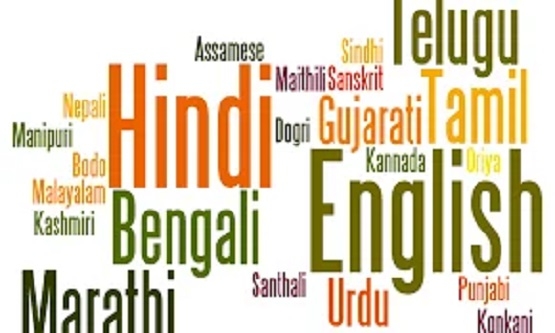High importance ofhighlighting Indian languages
| Date :17-Mar-2024 |

By Vijay Phanshikar :
Loud Thinking - Vijay Phanshikar
THE issue of primacy of Indian languages is bound to enter the national discourse time and again. This time, for the issue to come up in this column, the trigger is the proposed Indian languages conference at a major location. The organisers are making sincere efforts to promote Indian languages in every possible manner -- which is welcome, to say the least.
In spite of the fact that he works in an English-language newspaper, the loud-thinker has often insisted upon giving unquestionable importance to Indian languages -- Hindi, Tamil, Marathi, Oriya, Telugu, Urdu, Bengali ...! He always insist that people should speak and write in their own languages at least in their non-professional domains.
The trouble, however, is with our education. Right from the moment a child enters the school, he -- or she -- is introduced to English as the most potent language in the world.
This thoughtless stress on English has affected the importance of Indian languages -- not just in academics but also elsewhere in life. That is the reason why we come across young people who are not in a position to read and write and speak their own languages properly. And this is so, obviously, because of the madness we -- as a larger society -- have accepted as our religion while sending our kids to schools. Everybody these days wants his child to be admitted only to English medium schools. This is just beyond common sense, if one may pick up courage to say so.
The result is obvious: Our children are not in a position to know and enjoy the beauty of their respective mother-languages. And the worst thing is that nobody feels any sense of inadequacy or shame in this.
The loud-thinker suggests -- as he has always done for decades on end -- that the early education must be dominated by mother-language as the main medium of instruction. He himself went to a Marathi-medium school and developed an almost equal liking for and fair proficiency in Marathi, Hindi, Sanskrit and English. In spite of the fact that he did not opt Sanskrit as a subject of study at school, the loud-thinker understands Sanskrit in fair detail and reads books in that language without difficulty.
Despite this so-called non-English educational background, the loud-thinker can also claim a fair proficiency in English, an attribute that has stood him in good stead wherever he went in different countries.
Unfortunately though, very few seem to share this thinking.
Most people seem to insist upon education with English as the medium of instruction -- which has caused severe damage to learning of Indian languages at the school level. It is common experience that education-thinkers do not seem interested in promoting Indian languages through early education. Can there be anything worse than this?
The importance of the proposed Indian language conference has to be understood from this perspective. Many such events are being organised all over the country in recent times, all right. But those efforts must travel out of the conference venues and get into the heads and hearts of the academic community -- as a matter of unalterable commitment to the cause of good learning.